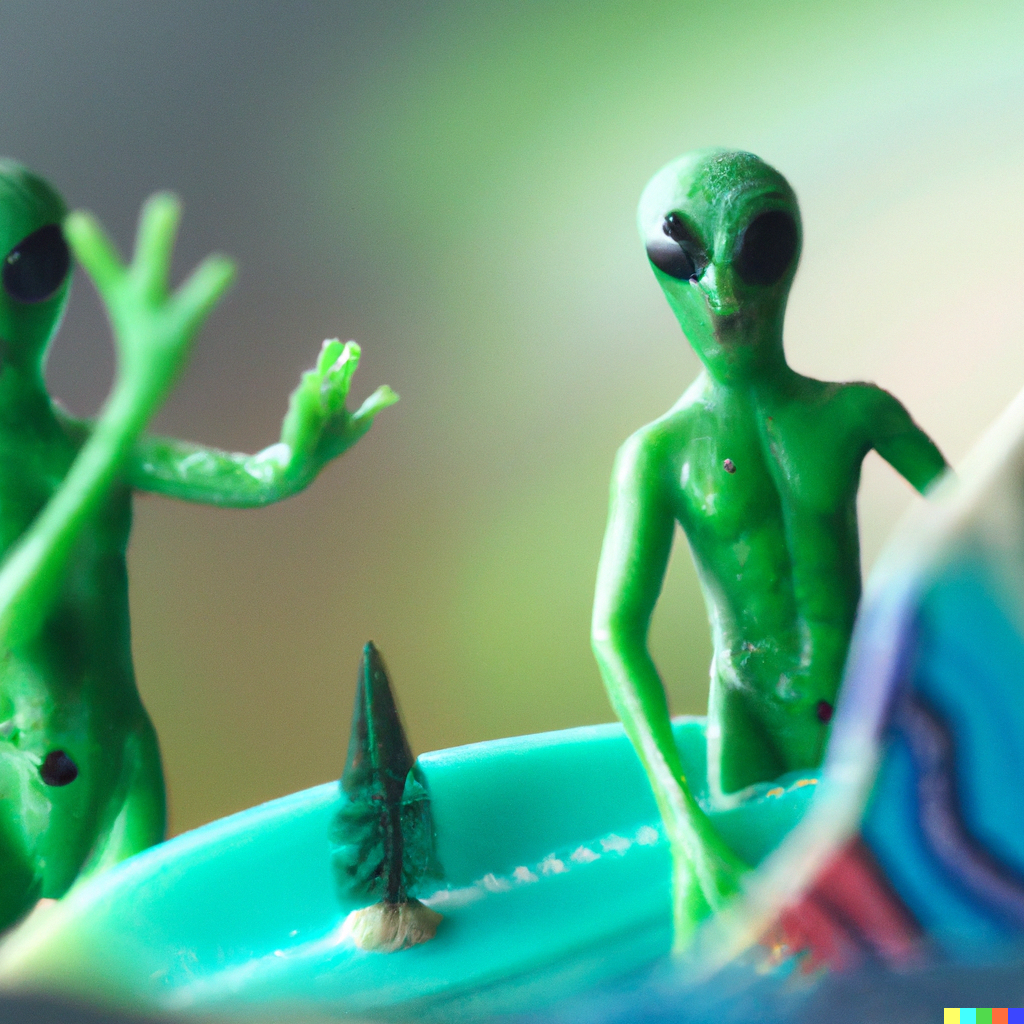The question of whether humans have the right to live in this world as well as aliens may seem absurd at first glance. After all, we have no conclusive evidence that aliens exist, let alone that they share our planet with us. However, recent developments in science and technology have raised some intriguing possibilities that challenge our assumptions and force us to rethink our place in the universe.
One of these developments is the release of a Pentagon report in June 2021 that confirmed 144 UFO encounters between 2004 and 2021. The report did not link any of these sightings to extraterrestrial activity, but it did acknowledge that some of them represented “unidentified aerial phenomena” (UAP) that could not be explained by conventional means. The report also stated that some UAP posed a potential threat to national security and recommended further investigation and research.

Another development is the discovery of thousands of exoplanets beyond our solar system, some of which may be habitable for life as we know it. According to NASA, there are more than 4,000 confirmed exoplanets and more than 3,000 potential candidates. Some of these worlds are located in the “Goldilocks zone” where liquid water can exist on their surfaces. Others may have different conditions that could support alternative forms of life. For example, some scientists have speculated that black holes could be used by advanced alien civilizations as sources of energy.

These discoveries raise some fascinating questions: Are we alone in the universe? If not, where are the aliens? How do they look like? How do they communicate? What are their intentions? And most importantly, how would we coexist with them if we ever encountered them?
- Advertisement -
There is no definitive answer to these questions, but we can try to imagine some possible scenarios based on our current knowledge and understanding. One scenario is that aliens are friendly and benevolent beings who want to share their wisdom and culture with us. They may visit us peacefully or invite us to join a galactic federation of civilizations. They may help us solve our problems or teach us new ways of living. In this case, humans would have no reason to fear or oppose them.
Another scenario is that aliens are hostile and aggressive beings who want to conquer or destroy us. They may attack us without warning or provoke us into war. They may exploit our resources or enslave our people. They may see us as inferior or incompatible with their values. In this case, humans would have every reason to resist or fight them.

A third scenario is that aliens are indifferent and aloof beings who want nothing to do with us. They may ignore us completely or avoid contact with us. They may observe us from afar or hide from us altogether. They may have their own agendas or problems that make them uninterested in interacting with us. In this case, humans would have little chance to communicate or cooperate with them.
Of course, these scenarios are oversimplified and hypothetical; reality may be much more complex and unpredictable than we can imagine. But they illustrate some possible outcomes of encountering alien life forms and how they would affect our rights and responsibilities as inhabitants of this world.

Regardless of what scenario we face, one thing is clear: We need to be prepared for any possibility. We need to expand our knowledge and curiosity about the universe around us; we need to develop our technology and innovation for exploration and defense; we need to foster our ethics and values for cooperation and respect; we need to cultivate our diversity and creativity for adaptation and survival.
We also need to recognize that we are not alone in this world even without aliens; we share it with millions of other species who have their own rights and roles in the ecosystem; we share it with billions of other humans who have their own cultures
and perspectives; we share it with future generations who will inherit its legacy.
Therefore, whether humans have the right to live in this world as well as aliens depends not only on how we relate to them but also on how we relate to ourselves and to each other.
We need to live in harmony with all forms of life, both known and unknown, both terrestrial and extraterrestrial, both human and alien.







